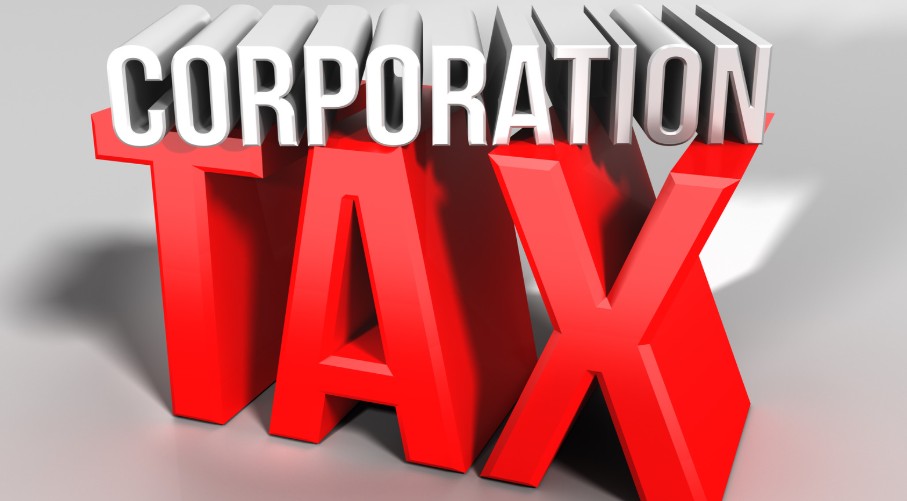Table of Contents
TogglePaying Corporation Tax is a critical responsibility for every registered business in the UK. It ensures companies meet their legal obligations while maintaining financial transparency with HMRC (Her Majesty’s Revenue and Customs). For businesses, understanding how to pay Corporation Tax is vital to avoid penalties, interest charges, and potential disruptions to daily operations.
Corporation Tax payments require careful planning, accurate financial records, and timely submissions. This comprehensive guide will walk you through the process step-by-step, covering everything from calculating your tax liability to submitting payments and avoiding penalties.
By following this guide, you’ll learn the most efficient ways to manage Corporation Tax, ensure your payments are on time, and stay compliant with HMRC regulations.
What is Corporation Tax?

Corporation Tax is a tax that UK-based businesses must pay on their taxable profits. It applies to profits earned from trading, investments, and the sale of assets like property or equipment.
Unlike personal income tax, Corporation Tax is calculated and paid directly by the company rather than being deducted automatically.
The current Corporation Tax rate for most UK businesses is 25% as of April 2023. Companies must calculate their tax liability, file a Company Tax Return, and pay the tax by specific deadlines. Accurate bookkeeping and timely payments are essential to avoid interest charges or penalties from HMRC.
Who Needs to Pay Corporation Tax?
Corporation Tax applies to most businesses and organizations operating in the UK. If your company generates profits, you’re likely required to pay this tax. Here’s a breakdown of who needs to pay Corporation Tax:
- Limited Companies: All UK-registered limited companies, regardless of size, must pay Corporation Tax on their profits.
- Foreign Companies: If a non-UK company has a branch, office, or any form of trading presence in the UK, it is required to pay Corporation Tax on profits earned within the UK.
- Clubs, Societies, and Associations: Non-profit organizations like sports clubs, community groups, and trade associations may also have to pay Corporation Tax if they earn taxable income from activities or investments.
Even if your company makes no profit, you must still file a Company Tax Return. It’s crucial to register your company with HMRC and obtain a Unique Taxpayer Reference (UTR) to ensure you can submit returns and make payments.
Key Deadlines for Paying Corporation Tax in the UK
Understanding Corporation Tax deadlines is critical to avoid unnecessary interest charges and fines. The deadlines vary depending on your company’s accounting period.
- Payment Deadline: You must pay Corporation Tax 9 months and 1 day after the end of your company’s accounting period.
- Filing Deadline: You must file your Company Tax Return (CT600) 12 months after the end of the accounting period.
Example of Corporation Tax Deadlines
| Accounting Period End Date | Payment Deadline | Filing Deadline |
| 31 March 2024 | 1 January 2025 | 31 March 2025 |
| 30 June 2024 | 1 April 2025 | 30 June 2025 |
If you miss these deadlines, you may face interest charges and financial penalties from HMRC. To avoid this, it’s wise to plan your payments in advance.
How to Pay Corporation Tax in the UK? | Step-by-Step Process

Step 1: Calculate Your Corporation Tax Liability
Before making a payment, you need to calculate how much Corporation Tax you owe. This calculation is based on your company’s taxable profits for the accounting period. For this calculation, you can use our Corporation Tax Calculator
How to Calculate Your Tax Liability?:
- Calculate Total Business Income: This includes all revenue from sales, investments, and any other taxable sources.
- Deduct Allowable Expenses: Subtract operating costs, salaries, and allowable business expenses.
- Apply Tax Reliefs: If eligible, claim any tax reliefs or credits to reduce your overall tax bill.
- Calculate the Tax Owed: Apply the current Corporation Tax rate (currently 19% for most UK businesses) to your taxable profits.
Accurate bookkeeping and accounting software like Xero, QuickBooks, or Sage can simplify this process. Alternatively, consult an accountant to ensure your calculations are correct.
Step 2: Get Your Corporation Tax Reference Number
The Corporation Tax reference number (CT reference) is required for making payments to HMRC. Without this reference, HMRC may not be able to allocate your payment to the correct company.
Where to Find Your Corporation Tax Reference Number?:
- On correspondence from HMRC after you register your company.
- On your CT600 Company Tax Return.
- In your HMRC online account.
When paying Corporation Tax, always double-check that you’ve used the correct reference number to prevent payment delays or misallocations.
Step 3: Choose a Payment Method
There are several ways to pay Corporation Tax. Choose a method that works best for your business and ensure you allow enough time for the payment to be processed.
Online Payment Options:
- Debit or Credit Card: Pay via the HMRC payment portal using a debit or credit card. Payments are typically processed the same or next business day.
- Online Banking (Faster Payments, CHAPS, BACS): Payments clear within 1-3 business days, depending on the method used.
- HMRC Mobile App: Use the HMRC app to pay directly from your bank account.
Other Payment Methods:
- Direct Debit: Setting up a Direct Debit ensures your payments are made automatically, but it takes around 5 working days to process.
- Bank or Post Office: Payments can be made at a bank or post office, but processing may take up to 3 working days.
Step 4: Submit Your Payment to HMRC
Once you’ve selected a payment method, it’s time to send the payment to HMRC.
How to Pay Corporation Tax?:
- Log in to your online banking, HMRC app, or HMRC online account.
- Enter Payment Details: Include your CT reference number.
- Select Payment Method: Choose Faster Payments, CHAPS, BACS, debit/credit card, or Direct Debit.
- Confirm Payment: Keep a payment confirmation as proof of payment.
Step 5: Check for Payment Confirmation
Once payment is made, you should receive a confirmation from your bank or HMRC. If you don’t receive confirmation, check with HMRC or your bank.
Why This Matters?:
- Avoids late payment penalties.
- Helps you maintain accurate financial records.
How Long Does It Take for a Corporation Tax Payment to Process?

The time it takes for payments to process depends on the payment method used.
| Payment Method | Processing Time |
| Online banking (Faster Payments) | Same or next working day |
| CHAPS | Same working day |
| BACS | 3 working days |
| Direct Debit | 5 working days |
| Debit/Credit Card | Same or next working day |
| Bank/Post Office | Up to 3 working days |
If your payment hasn’t been processed after the expected time, contact HMRC immediately to avoid penalties.
What Happens if You Miss a Corporation Tax Payment?

Missing a Corporation Tax payment can have serious financial and legal consequences for your business. HMRC enforces strict rules to ensure timely payments, and failing to comply can result in penalties, interest charges, and increased scrutiny of your business finances. Here’s a closer look at the impact of missing a payment:
1. Interest Charges
If you miss your Corporation Tax payment deadline, HMRC will start charging interest on the amount due from the day after the payment deadline. The interest is applied daily, and the current rate is set slightly above the Bank of England base rate. The longer you delay payment, the more interest you’ll owe.
2. Penalties for Late Payment
Unlike other taxes, there is no immediate fixed penalty for a late Corporation Tax payment. However, if you also fail to file your Company Tax Return (CT600) on time, you will be subject to additional penalties. Penalties for late filing start at:
- £100 for 1 day late.
- £200 for 3 months late.
- Additional daily penalties if the return is over 6 months late.
If payment is delayed long enough, HMRC may also investigate your company’s tax affairs.
3. Difficulty Setting Up Payment Plans
If you know you won’t be able to pay Corporation Tax on time, it’s best to contact HMRC before the payment deadline. You can request a Time to Pay (TTP) arrangement, which allows you to spread the payments over an agreed period. However, if you miss a payment without warning, HMRC may be less willing to offer this option.
What Should You Do?
If you miss a Corporation Tax payment, contact HMRC immediately. It’s possible to negotiate a payment plan and avoid further penalties. Acting quickly can prevent the situation from escalating and reduce the overall financial burden on your business.
What Should You Do If You Can’t Pay On Time?
- Contact HMRC and request a “Time to Pay” arrangement.
- Explain your situation and propose a payment plan.
- Make payments in instalments if HMRC approves your request.
Tips to Ensure You Never Miss a Corporation Tax Payment

Ensuring you never miss a corporation tax payment is vital for maintaining your business’s financial health and avoiding penalties. Here are some practical tips to help you stay on top of your obligations:
1. Understand Your Corporation Tax Obligations
- Know the Deadline: Corporation tax is usually due nine months and one day after your company’s accounting period ends.
- Register with HMRC: Ensure your business is registered for corporation tax and keep your details up-to-date.
2. Set Up a Tax Calendar
- Use Digital Tools: Incorporate reminders into your calendar (Google Calendar, Outlook, etc.).
- Leverage Tax Software: Accounting software like QuickBooks, Xero, or FreeAgent can automate reminders.
- Set Multiple Alerts: Schedule alerts a few months, weeks, and days before the due date.
3. Maintain Accurate Financial Records
- Track Income and Expenses: Regularly update your accounts to ensure accurate tax calculations.
- Separate Business Accounts: Use dedicated business accounts to simplify record-keeping.
4. Work with a Qualified Accountant
- Expert Guidance: Accountants can help you navigate tax complexities and meet deadlines.
- Proactive Updates: They can notify you about upcoming changes in tax laws or deadlines.
5. Create a Tax Reserve Fund
- Save Regularly: Allocate a portion of your profits to a tax reserve fund.
- Automate Savings: Set up automatic transfers to avoid last-minute cash flow issues.
6. Opt for Digital Tax Filing
- Faster Processing: Online filing is quicker and reduces the risk of errors.
- Access HMRC Tools: Use HMRC’s “Corporation Tax Online” service to file returns and make payments securely.
Conclusion
Understanding how to pay Corporation Tax is essential for every UK business. By following this guide, you can confidently calculate, prepare, and submit your payment on time. Missing deadlines can lead to costly penalties, so it’s best to plan ahead, use accounting software, or set up a Direct Debit.
By mastering the payment process, you’ll avoid unnecessary fines, maintain your company’s financial health, and stay in HMRC’s good books.
FAQ About Paying Corporation Tax
What is the deadline for paying Corporation Tax?
The payment deadline is 9 months and 1 day after the end of your accounting period.
Can I pay Corporation Tax in instalments?
Yes, if you can’t pay in full, you can request a “Time to Pay” arrangement from HMRC.
What happens if I overpay Corporation Tax?
If you overpay, HMRC will refund the excess or credit it toward future tax payments.
Can I change the payment method after submitting it?
No, but if you made a mistake, you can contact HMRC to discuss your options.
How can I check if HMRC has received my payment?
Log into your HMRC account or check your bank statement for confirmation.
Can I pay Corporation Tax with a credit card?
Yes, but additional fees may apply when using credit cards.
What happens if I use the wrong payment reference number?
Contact HMRC immediately to ensure the payment is correctly assigned to your account.




